חדשות המחקר
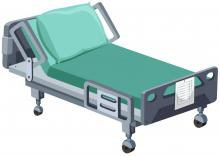
Avi Benov, Elon Glassberg: Trends in combat casualty care following the publication of clinical practice guidelines (J Trauma Acute Care Surg .)
The current study explores the trends in the application of combat casualty care following the publication of clinical practice guidelines in five domains over thirteen years.
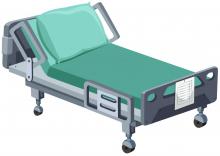
Elon Glassberg, Avi Benov: Trends in pre-hospital pain management following the introduction of new clinical practice guidelines (J Trauma Acute Care Surg .)
Early pain treatment following injury has been shown to improve long-term outcomes, while untreated pain can facilitate higher post-traumatic stress disorder (PTSD) rates and worsen outcomes. Nonetheless, trauma casualties frequently receive inadequate analgesia. In June 2013, a new clinical practice guideline (CPG) regarding pain management was introduced in the IDF Medical Corps, recommending oral transmucosal fentanyl citrate (OTFC) and low dose IV/IM ketamine. The purpose of this study is to examine trends in pre-hospital pain management in the IDF.
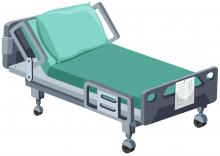
Elon Glassberg, Avi Benov: Pain management for casualties receiving life-saving interventions in the prehospital scenario - raising awareness of our human nature (J Trauma Acute Care Surg .)
Life-saving interventions (LSIs) are the hallmark of medical care in trauma casualties, reducing mortality and morbidity. Analgesia is another essential treatment, which has been shown to improve outcomes and decrease long-term complications. However, oligoanalgesia is common, and information regarding its relation to the performance of LSIs is scarce. The purpose of this study was to assess the relation between the performance of LSIs and analgesia administration in the prehospital environment.
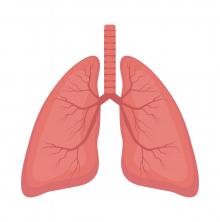
Hava Gil-Henn: PD-L1 recruits phospholipase C and enhances tumorigenicity of lung tumors harboring mutant forms of EGFR (Cell Rep . )
Cancer immunotherapy focuses on inhibitors of checkpoint proteins, such as programmed death ligand 1 (PD-L1). Unlike RAS-mutated lung cancers, EGFR mutant tumors have a generally low response to immunotherapy. Because treatment outcomes vary by EGFR allele, intrinsic and microenvironmental factors may be involved.
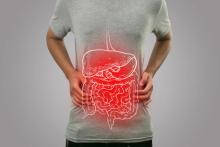
Nasser Sakran, Ian Gralnek, Mohamad Hamoud, Ron Dar: Gastro-colic Fistula: a Rare Complication of a Marginal Ulcer Following One Anastomosis Gastric Bypass (Obes Surg . )
One anastomosis gastric bypass (OAGB) is gaining acceptance as a safe and effective surgical option for treating severe obesity. Less than 5% of patients following OAGB may require revisional surgery. Of these surgical revisions, half are performed due to severe malnutrition, and the other half due to bile reflux, marginal ulcer (MU), or weight regains.
Several risk factors appear to impact the development of MUs and include poor tissue perfusion due to tension or ischemia at the anastomosis, Helicobacter pylori infection, NASID use, and smoking. MUs can lead to bleeding, perforation, stricture, and fistula formation. Gastro-colic fistula (GCF) is an extremely rare complication following OAGB.
Symptoms caused by GCF include vomiting, diarrhea, weight loss, anemia, and foul-smelling eructations.
The surgical management of these patients consists of a one-stage gastrocolic resection with primary anastomosis. When possible, resection of the involved portion of the antrum and the fistula of the transverse colon with an appropriate reconstruction of gastrointestinal continuity.
To our knowledge, this is the first reported case of GCF following OAGB.

Elon Glassberg: Remote ischemic preconditioning improves tissue oxygenation in a porcine model of controlled hemorrhage without fluid resuscitation (Sci Rep . )
Remote ischemic preconditioning (RIPC) involves deliberate, brief interruptions of blood flow to increase the tolerance of distant critical organs to ischemia. This study tests the effects of limb RIPC in a porcine model of controlled hemorrhage without replacement therapy simulating an extreme field situation of delayed evacuation to definitive care.

Yedidiel Elbaz, Igor Portnov, Bela Lurie-Marcu, Eric S Shinwell: Minimally invasive surfactant therapy versus intubation for surfactant delivery in preterm infant with RDS: evaluation of safety and efficacy (J Matern Fetal Neonatal Med .)
Minimally invasive surfactant therapy (MIST) is a promising mode of administration that offers the potential to limit barotrauma and prevent lung injury in preterm infants with respiratory distress syndrome (RDS). This study assessed the effects of the implementation of MIST on safety and efficacy in infants who met criteria for surfactant administration and were treated by MIST as compared with a historical control group treated with surfactant via an endotracheal tube during mechanical ventilation.

Sammer Diab, Erez Kachel, Liza Grosman-Rimon, Amjad Shalabi, Offer Amir, Shemy Carasso: Coronary artery bypass graft surgery in patients on ticagrelor therapy is not associated with adverse perioperative outcomes (J Cardiothorac Surg .)
Management of patients treated with Ticagrelor is challenging, as stopping Ticagrelor prior to coronary bypass graft surgery (CABG) may increase the risk of acute stent thrombosis. The aim of the study was to compare bleeding complications in patients treated with ticagrelor combined with acetylsalicylic acid (ASA) versus ASA alone until 1 day before surgery.
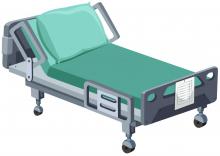
Dor Gotshal, Maya Azrad, Zohar Hamo, Orna Nitzan, Avi Peretz: IL-16 and BCA-1 Serum Levels Are Associated with Disease Severity of C. difficile Infection (Pathogens . )
Clostridioides difficile infection (CDI) is associated with a high risk for complications and death, which requires identifying severe patients and treating them accordingly. We examined the serum level of six cytokines and chemokines (IL-16, IL-21, IL-23, IL-33, BCA-1, TRAIL) and investigated the association between them and patients' disease severity.
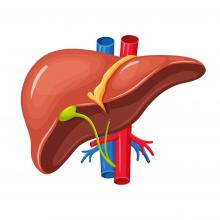
Tzipora C Falik-Zaccai, Hanna Mandel: Concomitant Congenital CMV Infection and Inherited Liver Diseases (Eur J Med Genet . )
Inherited liver diseases may present in infancy as cholestatic jaundice progressing to severe hepatic dysfunction. Congenital cytomegalovirus (cCMV) infection may initially involve the liver, yet in otherwise healthy hosts rarely leads to long-term hepatic disease. We report a series of three patients, diagnosed with hereditary liver diseases: progressive familial intrahepatic cholestasis (PFIC) type IV, alpha 1 anti-trypsin deficiency (A1ATD) and Alagille syndrome (ALGS), who were also diagnosed with cCMV infection.

Edo Y Birati: Coronavirus disease 2019 in heart transplant recipients: Risk factors, immunosuppression, and outcomes (J Heart Lung Transplant .)
COVID-19 continues to inflict significant morbidity and mortality, particularly on patients with preexisting health conditions. The clinical course, outcomes, and significance of immunosuppression regimen in heart transplant recipients with COVID-19 remains unclear.

Matan Schonfeld, Jacob Bornstein: Mechanically Supporting Uterosacral Ligaments for the Relief of Provoked Vulvodynia: A Randomized Pilot Trial (J Pain Res .)
Provoked vulvodynia (PV) is the most common cause of vulvar pain and dyspareunia. Although its etiology is unknown, it has been associated with musculoskeletal dysfunction. The inability of the lax uterosacral ligaments (USLs) to support the adjoining T11/L2 and S2-4 nerve plexuses is considered to cause PV. This study aimed to determine whether providing mechanical support to the USLs would improve PV.

Marie Noufi Barhoum: Case Report: Neonatal Diabetes Mellitus Caused by a Novel GLIS3 Mutation in Twins (Front Endocrinol (Lausanne) .)
Mutations in GLIS3 cause a rare syndrome characterized by neonatal diabetes mellitus (NDM), congenital hypothyroidism, congenital glaucoma and cystic kidneys. To date, 14 mutations in GLIS3 have been reported, inherited in an autosomal recessive manner. GLIS3 is a key transcription factor involved in β-cell development, insulin expression, and development of the thyroid, eyes, liver and kidneys. We describe non-identical twins born to consanguineous parents presenting with NDM, congenital hypothyroidism, congenital glaucoma, hepatic cholestasis, cystic kidney and delayed psychomotor development.
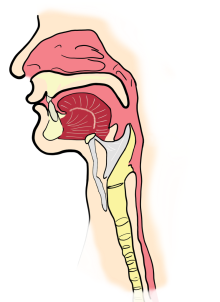
Local Delivery of Mometasone Furoate from an Eluting Endotracheal Tube Reduces Airway Morbidity Following Long-Term Animal Intubation (ACS Appl Bio Mater .)
Upper airway complications are common sequelae of endotracheal tube (ETT) intubation, and systemic corticosteroids are considered a mainstay treatment for this problem. Drug-eluting ETT may present an attractive option for topical steroid delivery while avoiding systemic side effects and improving the therapeutic outcome. The objective of the present study is to evaluate the reduction of tube-related tracheal morbidity via a self-designed steroid-eluting ETT with controlled sustained release properties in an animal model. (Forsan Jahshan, Offir Ertracht, Netanel Eisenbach, Amani Daoud, Eyal Sela, Shaul Atar, Boris Fichtman, Amnon Harel, Maayan Gruber)

Rina E Buxbaum, Adi Shani, Alon Rod, Nimrod Rahamimov: Percutaneous, PMMA-augmented, pedicle screw instrumentation of thoracolumbar ankylotic spine fractures (J Orthop Surg Res . )
Fractures in the ankylotic spine may have an insidious presentation but are prone to displace with devastating consequences. The long lever arm of ankylosed spine fragments may lead to pulmonary and great vessel injury and is difficult to adequately immobilize. Conservative treatment will produce in many cases poor outcomes with high morbidity and mortality. Open surgical treatment is also fraught with technical difficulties and can lead to major blood loss and prolonged operative times. In recent years, percutaneous instrumentation of non-ankylotic spine fractures has gained popularity, producing similar outcomes to open surgery with shorter operative times and reduced blood loss and hospital length of stay. We describe our experience implementing these techniques in ankylotic spine patients.



